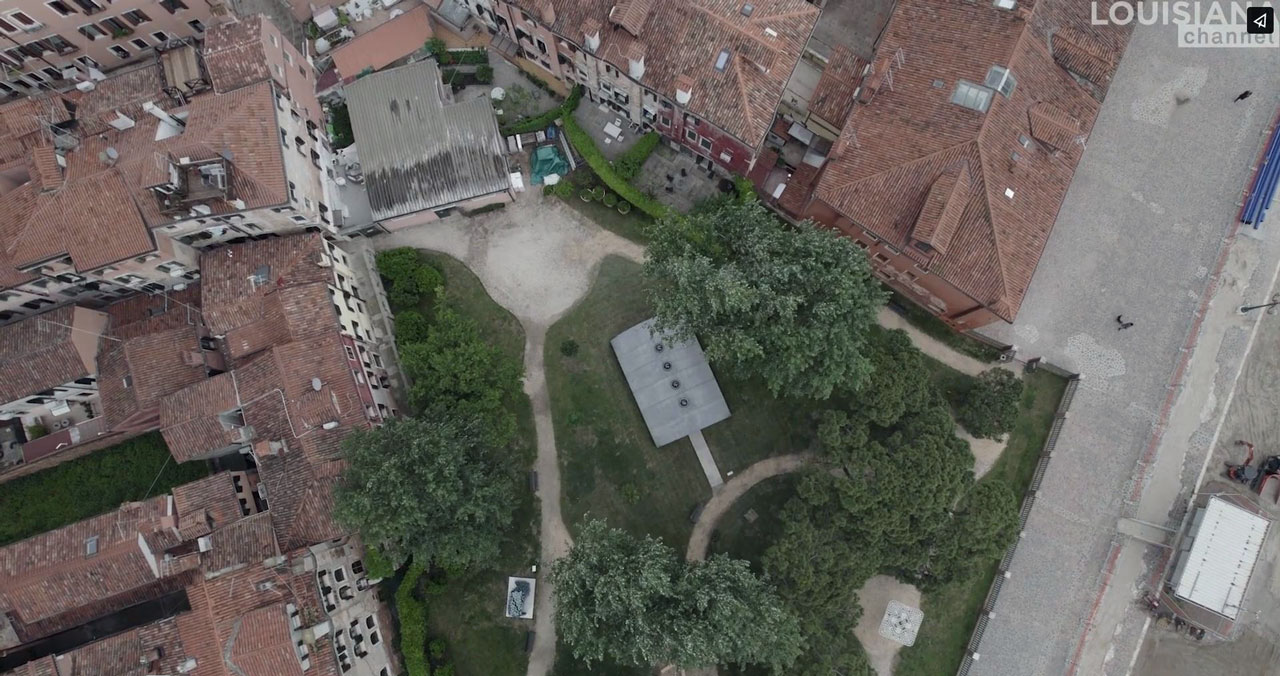VIDEO: Norman Foster-How to Respond to Disaster
 We met architect Norman Foster in Venice, presenting a project addressing the need for basic shelter, for example, due to natural or manmade disasters such as war, earthquakes, famines, and homelessness.
We met architect Norman Foster in Venice, presenting a project addressing the need for basic shelter, for example, due to natural or manmade disasters such as war, earthquakes, famines, and homelessness.
“This project calls into question what is temporary. And what is permanent? A tent will last a year. A sophisticated tent for three years. This small pavilion has a minimum life expectancy of 20 years and undoubtedly will go beyond that. It has applications for instant disaster relief. For the homeless. For young families who want an unaffordable alternative to a building.”
The Essential Homes Research Project by the Norman Foster Foundation and Holcim was inaugurated in Venice on the 2023 Biennale of Architecture launch. In this partnership, the Norman Foster Foundation designed the housing concept to meet essential human needs, providing safety, comfort, and well-being for people in displacement who can live in temporary settlements for decades, for example, in refugee camps. Holcim, a global leader in manufacturing sustainable building materials, brought the project to life with a range of its solutions, making it low-carbon, energy-efficient, and circular, demonstrating how sustainable building can be possible for all.
Norman Foster, President of the Norman Foster Foundation: “This project has evolved out of a workshop on the refugee crisis. How can we ensure everyone, including some of our world’s most vulnerable populations, can have access to decent living conditions? The project addresses the basics of shelter. The small pavilion can be built by total inexperience. It has applications for instant disaster relief. For the homeless. For young families who want an unaffordable alternative to a building.”
The Essential Homes Research Project opens the fundamental conversation about making sustainable building accessible to all to build a future that works for people and the planet. It provides safety, comfort and well-being. This home is highly sustainable and has a 70% lower CO2 footprint than traditional structures.
“It’s not an end result. It’s the start of a journey.”
Norman Robert Foster (b. 1935) is an English architect and designer considered one of his generation’s most prolific architects. He is the founder and executive chairman of Foster + Partners (1967), the global studio for architecture, urbanism, and design responsible for renowned buildings such as the Great Court British Museum and Millennium Bridge (London), Reichstag (Berlin), Millau Viaduct (France), Hearst Tower (New York), Hong Kong International Airport (Beijing), Capital International Airport and Apple Park (California). Foster has received numerous awards, such as the Pritzker-prize in 1999 (often referred to as the Nobel Prize of Architecture), the RIBA Royal Gold Medal, the AIA Gold Medal, the RIBA Stirling Prize in 1998, 2004 and 2017, as well as the Aga Khan Award for Architecture in 2007. He was knighted in 1990, and in 1999 he was created a life peer as Lord Foster of Thames Bank. He is president of the Norman Foster Foundation, based in Madrid, with a global reach, promoting interdisciplinary thinking and research to help new generations of architects, designers, and urbanists anticipate the future.
Norman Foster was interviewed by Marc-Christoph Wagner on the 18th International Architecture Exhibition (The Biennale Architettura 2023) in Venice, Italy. The interview took place in May 2023. Camera: Simon Weyhe, Editing: Jarl Therkelsen Kaldan, Produced by: Marc-Christoph Wagner, © Louisiana Channel, Louisiana Museum of Modern Art, 2023, Louisiana Channel is supported by Den A.P. Møllerske Støttefond, Ny Carlsbergfondet and C.L. Davids Fond og Samling. This film is supported by Dreyersfond and Fritz Hansen
